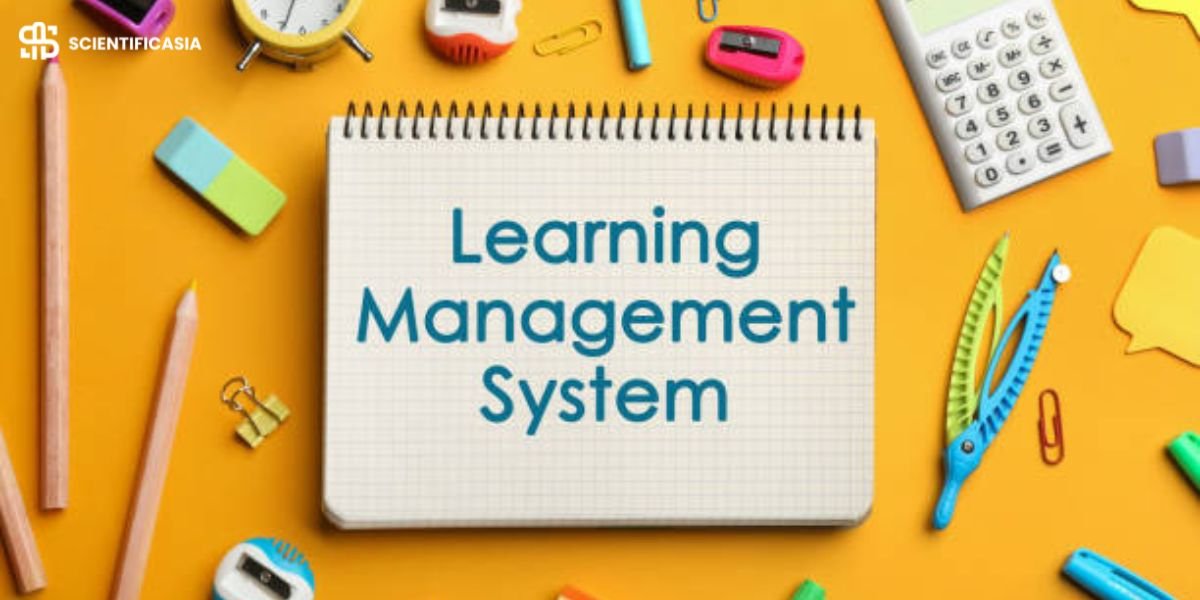Organizations are now turning to innovative methods to manage training and all related development activities, in a world constantly in flux and where acquiring new knowledge is crucial for everyone. Of all the available solutions that have risen in popularity, one stands out most prevalently: the Learning Management System. The LMS has therefore played a big role in the management of delivery and tracking of learning activities within the companies and has thereby brought a lot of advantages to learners as well as the administrators.
Before defining the role of the LMS in the process of learning transformation, it is essential to understand what exactly the learning transformation is.
At its core, an LMS, or Learning Management System, is a piece of software designed for educational purposes that enable the delivery of instructional materials and assessment of learners’ performance. As a result of the functionalities that are usually incorporated with it, an LMS is a central repository for managing training documents, quizzes, and tables.
From completing new employee orientation to mandated compliance training or ongoing professional development, an LMS offers a flexible and practical solution for addressing multiple learning requirements. E-learning initiatives and the overall improvement of workplace education may easily be enhanced through the aid of technology, helping organizations harness the full potential of their workforces.
Enhancing Accessibility and Flexibility
Among the best LMS features is the promotion of access and flexibility of learning. They differ from face-to-face teaching, where learners are in a fixed location at a certain time and day, making the LMS more convenient since it allows access at any time. It is common for employees to be on the move, at home, on a business trip, or simply have distinct training preferences; an LMS enables learners to focus on content from any device connected to the Internet. This assists in addressing various learning needs and sets, as well as requirements that allow training to be easily fit into the learner’s busy schedule, thus increasing their interactions during the learning process.
Creating specific pathways for learning to develop specific attributes in learning.
Last but not least, another major benefit of owning an LMS is its ability to offer tailored learning experiences for personal development. Organizations can easily develop training programs that fit the learner’s needs and adequate competency levels by using functions such as pre-assessment, mapping of competencies, and learning algorithms. This targeted approach also ensures that the employees are exposed to materials that will have a strong impact on developing the knowledge and skill set that they require for advancement in their chosen careers.
Additionally, due to the fact that an LMS provides real-time progress and performance results, it helps monitor learners to identify areas of concern. It gives feedback and support when necessary to ensure that learners acquire mastery over their competencies.
Driving Engagement through Interactive Learning Experiences
In addition to delivering content, an LMS enhances engagement through interactive learning experiences. Using multimedia, game characters, incentives, and social learning applications, LMS turns readers into participants. When learners are observing instructional videos, practicing in virtual systems, or composing their essays while sharing their opinions with their colleagues in online discussion boards, they are learning, making them more motivated and helping them to retain what was learned. In addition, hailing from different parts of the world, learners can effectively collaborate and interact with one another through an LMS and acquire new experiences while sharing what knowledge they have, which creates a strong bond among learners.
Understanding the Results of Learning Outcomes & ROI
Another critical aspect of an LMS is the effectiveness it has in assessing the learning results and the overall return on investment or ROI. Efficient analysis and reporting options have made the learners’ progress analysis, the organization’s overall performance analysis, and the effectiveness analysis of the training programs easy. Using the results of tracking effectiveness statistics, including course completion, quiz results, and learners’ feedback, administrative decision-makers get in-depth information and insights into the training initiatives and can make effective decisions on further investments.
Furthermore, the analysis of products’ performance with training results related to key performance indicators of business, including employee productivity, client satisfaction, and revenue generation, will help organizations to identify practical benefits of training and their investments in an LMS.
Streamlining Compliance Training Efforts
In a specific aspect, the benefits of LMS become most evident in the provision of a more efficient mechanism for delivering and managing compliance training in organizations. Compliance training is normally mandatory, this is because most corporations depend on it, especially those in the areas of health, finance, and production.
Organizations have been able to deliver, manage, and track their training and education solutions through the use of an LMS and document compliance training activities, ensuring that employees stay ahead with the latest regulations and industry standards. Features such as automated reminders, certification tracking, and audit trails simplify compliance management and provide stakeholders with peace of mind, knowing that their organization is effectively meeting its legal and regulatory obligations.
Facilitating Global Training Initiatives
Because our organization is international in reach, it is not unusual to find that the coordination of training efforts in one area and time zone is very different from that of another. However, an LMS is a great solution that can meet organizational needs in a manner that does not restrict employees by geographic location, thus providing consistent training for companies’ staff all over the world.
The benefits of multilingualism, localization of content, and time zone cover the needs of different learners with equal opportunities to access resources regardless of their geographical or cultural backgrounds. In addition, by providing access to training data and blocking/tying processes at multiple locations, an LMS enforces uniformity and harmony with the organization worldwide. Thus, the learning management system propels the corporation towards a unified culture and global efficiency.
Promoting the Staff Enhancement and E-Development Process
Besides, when implementing an LMS as the system for meeting all the training needs in an organization, it is essential for the achievement of the goals of the company by enabling employee development and career advancement. Self-explanatory as an LMS empowers employees to navigate their own L&D journey by providing various courses, certifications, and skill-enhancing training.
For the workers to obtain new proficiencies in a bid to execute a new function or even prepare for a different position, they can obtain the materials and training needed and also keep a tab on the progress in line with the learning objectives.
Furthermore, by opening up doors and views into options for development, options for career, training, and other options on the current job market, an LMS supports employees’ abilities to make decisions regarding the improvement and sustainability of their roles in the organization, enhancing retention of human resources.
Flexible Learning: A New Trend of Learning for Future Education
A larger part of this knowledge is derived from the understanding that the field of learning and development is not stagnant due to advances in technology. A Lcisd Learning Management System is not a mere object from which the learners and organizations can just benefit, but in fact, it is a complex and dynamic one that adapts to meet the needs of all the interested parties.
In terms of functioning, from including up-and-coming technologies like artificial intelligence or virtual reality to adopting trends like microlearning or mobile learning, a Learning Management System forms the future of learning and remains ahead. Thus, by accepting change as the norm and practicing proactive capitalization in areas of idea enhancement, organizations can harness the potential of an LMS to drive learning transformation, foster employee engagement, and achieve strategic business objectives in an increasingly digital world.
In essence, an LMS is a valuable asset when it comes to the process of unleashing learning for learners or organizations. Due to the great flexibility in learning strategies and accommodation of employees’ needs, an LMS enables learners to acquire new competencies. It helps to improve knowledge and performance levels and build the best skills and abilities.
In addition, by engaging learners, assessing results, and proving value, an LMS empowers the organization to enhance the effectiveness of training, programs, and ultimately, business advancement. That states, especially with the advancement of the digital world, using LMS is not only a sure way to invest but a core competency in the knowledge economy.
















